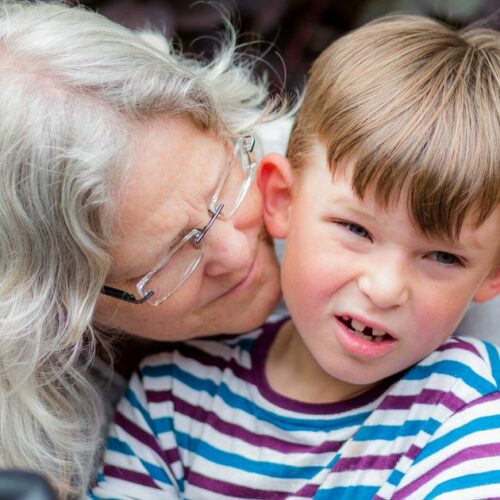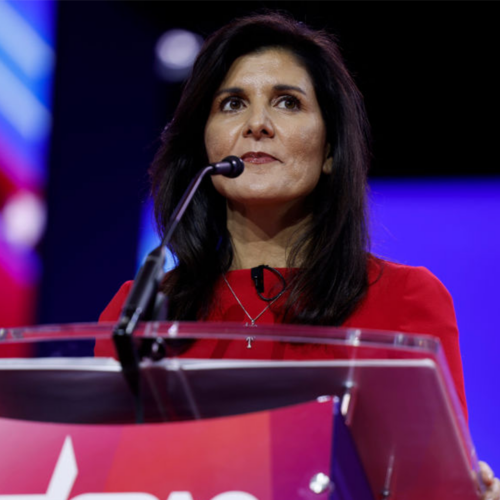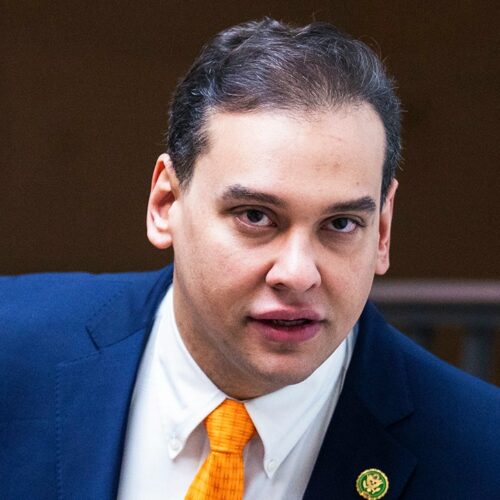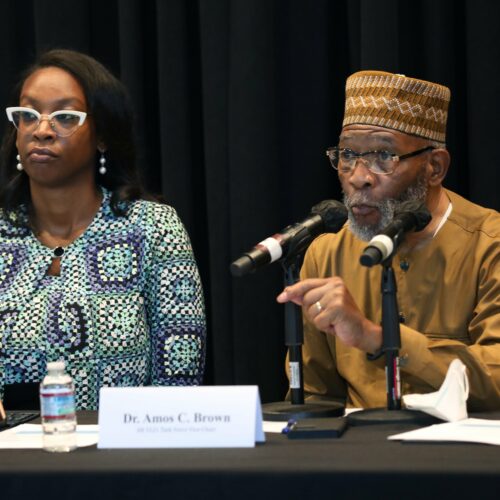You walk into a family holiday gathering with your child in tow. Aunt Kathy bends down and stretches out her arms to your little one: “Come over here and give me a big hug!” Your kid gets quiet, shakes their head “no” and grabs on to you. You nudge them to comply: “Aw, come on, go hug your Auntie. You haven’t seen her in forever!”
Your intentions here are good: You don’t want to hurt a loved one’s feelings, or for your kid to seem rude. But by pressuring a child to show affection when they don’t want to, you may be sending mixed messages, albeit inadvertently, about who is in charge of their body.
As parents, “if our messaging is about teaching kids to honor their gut, to expect people to respect their boundaries and to say ‘no’ when someone is making them feel physically unsafe, we have to make the concept of consent part of the messaging, no matter the context,” psychologist Aliza Pressman — co-founder of the Mount Sinai Parenting Center and host of the podcast “Raising Good Humans” — told HuffPost.
Indeed, many parents today emphasize to their kids the importance of concepts like bodily autonomy (a person’s right to decide what happens to their own body without external influence) and consent (or giving permission for something to happen — in this case, for physical touch). But when you push your kid to kiss a grandparent they don’t want to kiss, you’re effectively telling them to ignore their discomfort with this person or the situation.
SAMUEL ASHFIELD/SCIENCE PHOTO LIBRARY via Getty Images
“Children should never be forced to let another person touch their body against their will,” clinical psychologist Laura Markham, author of “Peaceful Parent, Happy Kids” and founder of the site Aha! Parenting, told HuffPost. “There is already a big power imbalance between adults and children, so that children are often frightened not to accommodate an adult’s demands, which can lead to more vulnerability to abuse. Children need to know that no one should touch their body without their consent.”
We want to show our kids that it’s OK to say “no” to unwanted physical touch from anyone, including adults they know ― and that they can expect their wishes to be respected.
So, what should you do when this situation arises?
When Grandpop is begging for a kiss and your kid wants no part of it, it’s easy to get flustered trying to manage the situation and all the emotions that may accompany it.
“We often feel uncomfortable disappointing people in our family. We may even feel embarrassed that our children are not being super friendly with people we know love them,” Pressman said. “This can take us out of our thinking brains and move us into a shame brain, one that just wants to feel better and make everyone feel better — even at the expense of the lessons we are hoping to teach our kids.”
Take a deep breath and remember: Your job is to guide your kids and teach them to trust themselves. Your job is not to manage other adults’ emotions.
Keeping a few phrases in your back pocket can be helpful in a situation like this.
You can try saying something like: “You aren’t quite ready for a hug yet? I understand. Maybe you’ll be ready later on,” Markham suggested.
Or: “We do need to greet your relative right now. What else could you do? Maybe shake hands? Maybe blow a kiss?” Markham said. The idea is to find something your kid feels comfortable with.
Even better: Prepare your kid ahead of time
Before the event, fill your kid in on what to expect, and let them know there are other ways to say hi — like waving, smiling or fist bumping — if they don’t want to give hugs or kisses.
Markham suggested something like: “When we get to Grandma’s, there will be a lot of relatives there, and they will all be excited to see you. You may not remember all of them.”
“When we see a relative, even one whom we haven’t seen in a long time, we need to greet them, even if we don’t remember them,” she continued. “Many of them will want to hug you. You can hug them, or you can say, ‘I’m not quite ready for a hug but I’m glad to see you. Can I blow you a kiss?’ How would that feel to you? Do you want to practice blowing a kiss?”
Tell your child that when they turn down a hug or a kiss, the relative might seem a bit sad at first. Make sure they know it doesn’t mean they did anything wrong.
“When we care about people, we don’t want to upset them or have them be upset with us,” sex educator Nadine Thornhill wrote for Today’s Parent in 2019. “Let your kid know that sometimes people may feel a little disappointed when we say ‘no’ to them, but they’ll be OK. It isn’t your child’s job to make themselves uncomfortable so other people won’t be.”
Know that it may take some relatives longer than others to understand all of this.
“Sometimes you just know Grandma is going to expect a hug,” Pressman said. “If that’s the case, the next best thing is to simply acknowledge to your child that you understand that you’ve said you don’t believe in forced hugs, but you are struggling with how to explain that to Grandma.”
Educate your relatives about why this matters to you, try to be patient with them, and hopefully they’ll soon come around to graciously accepting a fist bump or a high five from your kiddo.





